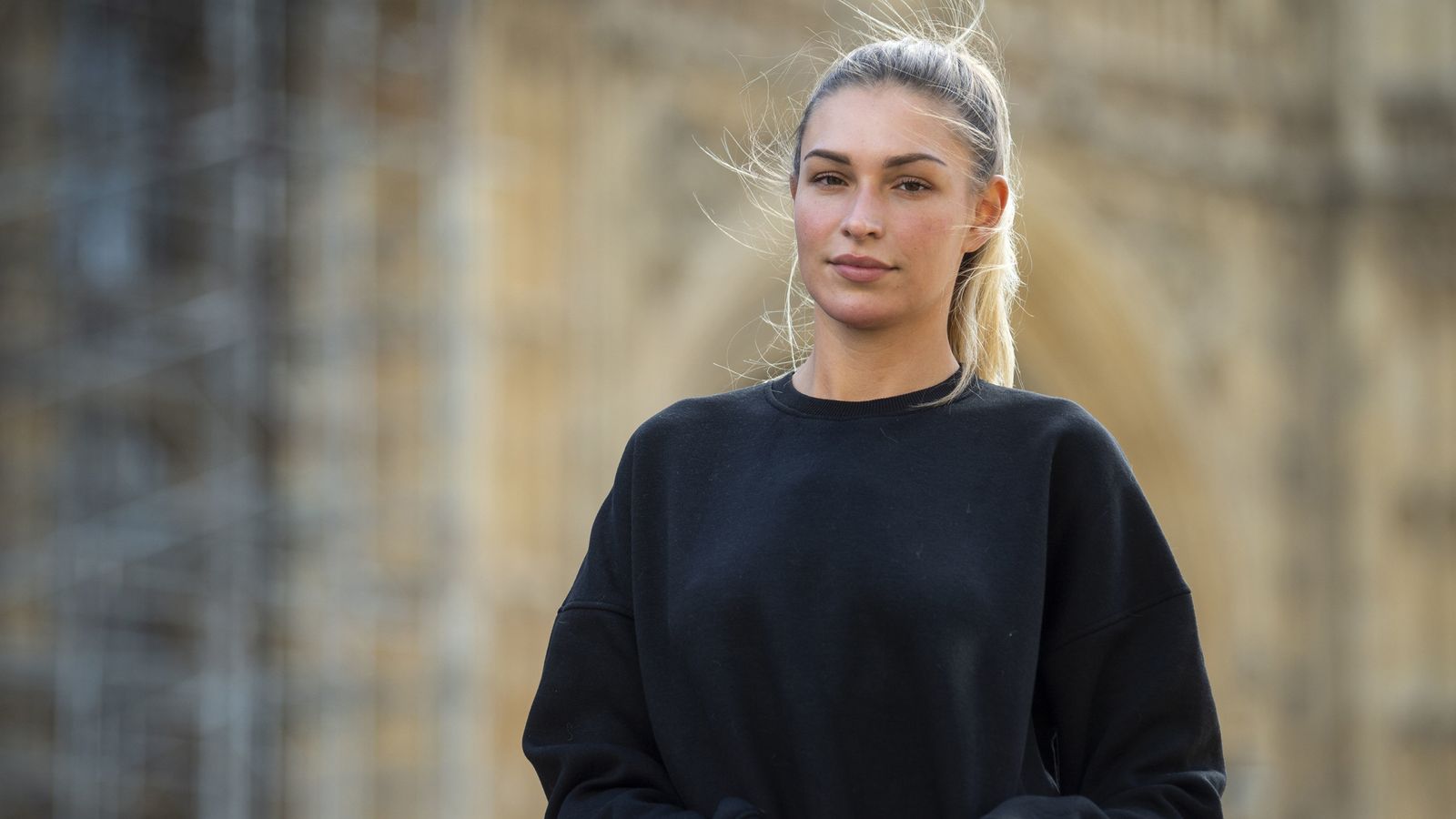A former Love Island contestant who was twice the victim of revenge porn has called for anti-abuse laws to protect women and girls online.
Zara McDermott, 24, who appeared on series four of the reality TV show, has backed government plans for a new Online Safety Bill to tackle abuse and cyberbullying.
The social media star has previously spoken publicly about her experiences as a victim of revenge porn – first as a teenager and again when she appeared on Love Island in 2018.
At 14 she was pressured by a boy at school to send intimate images of herself, who then went on to share them around.
And at 21, during her appearance on ITV show, intimate images of McDermott were again circulated on WhatsApp.
She previously told Sky News that she went through “every single emotion… the embarrassment, the shame” when she was targeted.
Speaking on Tuesday she said: “We as a society do not tolerate physical abuse – so why in the past have we been more tolerant of online abuse?
“It’s important that those behind social media accounts – often anonymous – are held to account for their words.”
She added: “Social media has become a breeding ground for this behaviour and if it is not moderated sooner, there will be significant consequences to the mental health of our young people.”
Please use Chrome browser for a more accessible video player
McDermott was joined by former England footballer Fara Williams at a meeting with digital minister Caroline Dinenage on Tuesday.
They joined 15 and 16-year-old girls at Hackney Laces girls football team training ground in Dalston to listen and share their experiences of online harassment.
The roundtable discussion came as the latest series of Love Island kicked off last week with contestant Chloe Burrows already receiving online death threats.
Williams is England’s most capped footballer – but as a high-profile women’s player she has been a victim of hate on social media, in particular when she moved from Everton to rivals Liverpool in 2012.
Ms Dinenage said: “Women have every right to enjoy social media without suffering despicable criminal behaviour, threats of violence and harassment.
Subscribe to the Daily podcast on Apple Podcasts, Google Podcasts, Spotify, Spreaker
“Yet I’ve heard more powerful accounts today of the unacceptable reality facing not just those in the public eye but all girls growing up online.
“We owe it to future generations to shape a safer internet.
“Our new laws will do that by making the companies profiting so greatly from young people’s use of their sites accountable for what happens on their platforms.”
The government’s landmark Online Safety Bill was published in May.
It will put a new legal duty of care on online companies to protect their UK users from harm, including people receiving abusive comments, threats and harassment online.
Social media companies will need to remove abusive posts, enforce their own community standards and prevent explicit illegal images – including intimate images shared without consent – circulating on their services.
If they don’t they could face multi-billion-pound fines or even bans.






















